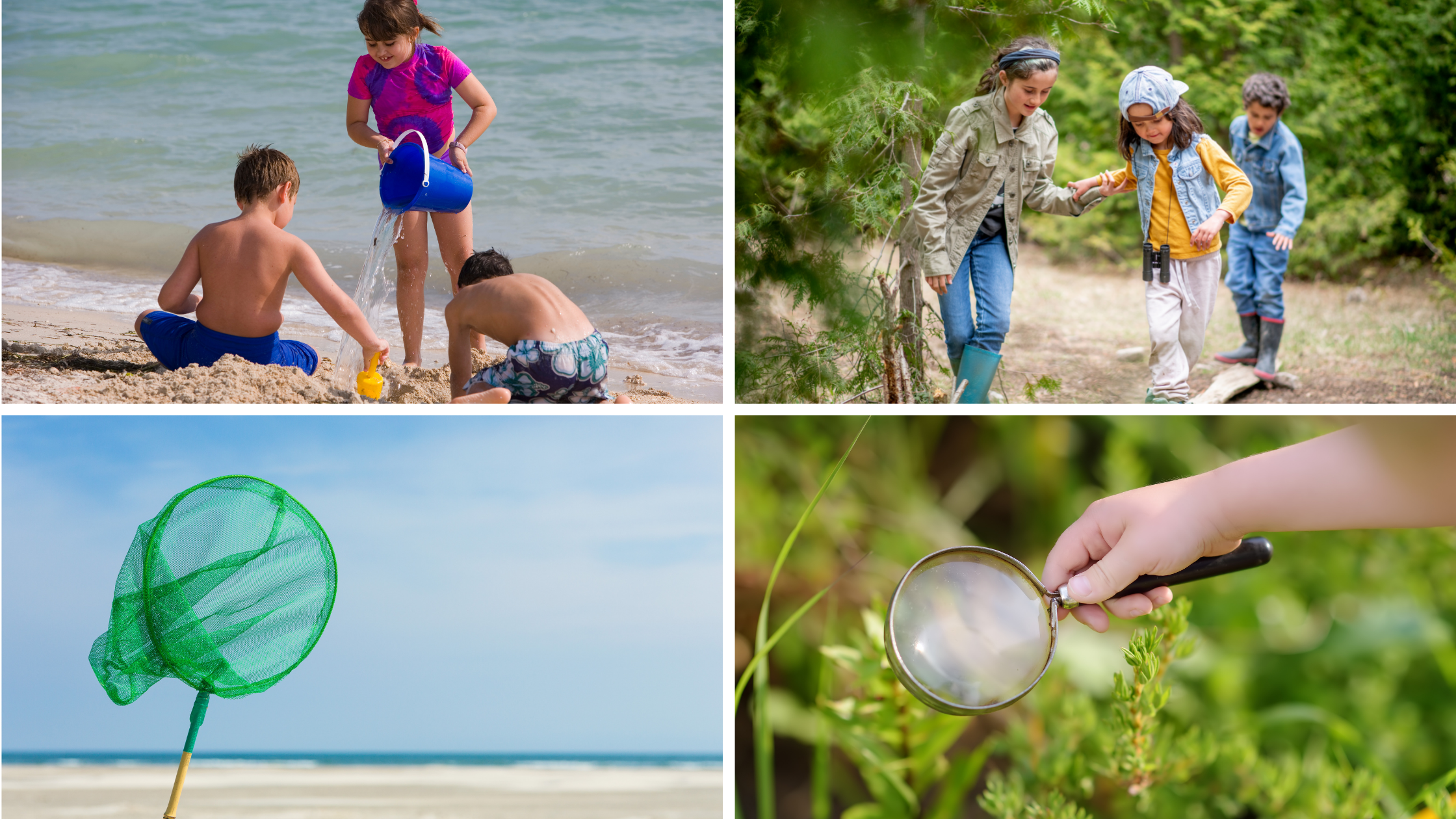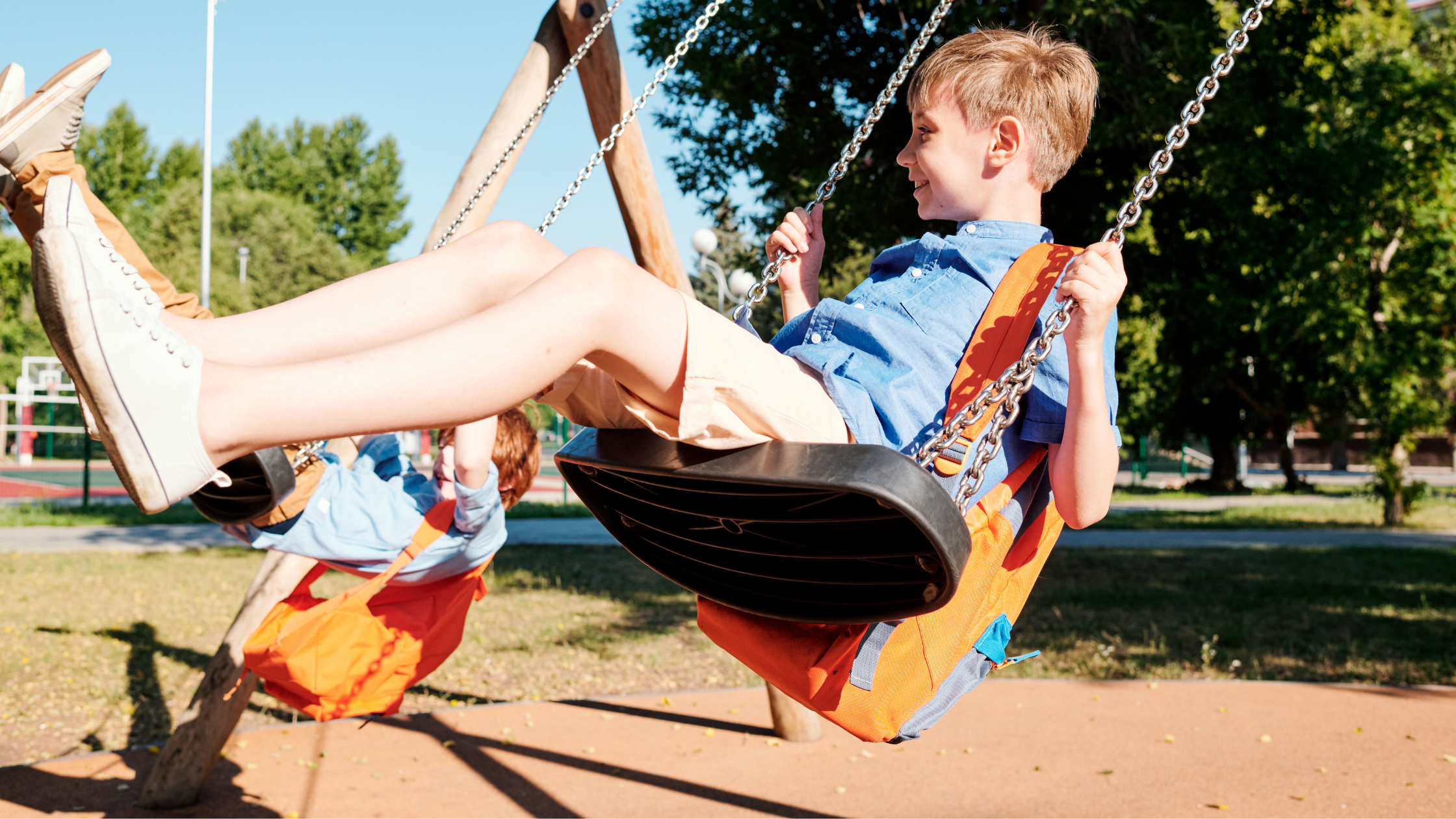For parents of children with learning differences, the disruption in routine from school to summer break can feel sudden and overwhelming. And think of how the kids feel! Whether it was a virtual or in-person classroom, they’re suddenly going from set schedules alongside peers to all that free time with limited structure.
Not to mention, in the wake of a pandemic, we’re forced to face the after-effects of months of quarantine, social distancing, and isolation. We have to acknowledge that spending too much time inside isn’t the best thing for us—or our kids.
Establishing a routine where you and the kids consistently get outside benefits both your mental and physical wellbeing, counteracting the effects of too much time inside. Here are just a few of the perks to look forward to when you make the most of the great outdoors:
A Breath of Fresh Air
Seasonal allergies can feel like a major downside to spending time outside but while we tend to associate bad air quality with cities, car exhausts, and plant pollen, indoor pollutants can also be harmful. From inadequate ventilation and stagnant air to undetected mold, these hidden allergens can weaken your immune system and have long-term negative health impacts.
The beauty of the great outdoors is that it completely reverses the harmful effects of too much time inside.
Spending time outdoors can offer a huge boost to the immune system. And with summer just around the corner, kids need to make up for all that time in the classroom (or in front of a screen on a Zoom call) during a school year. As for parents, encouraging the kids to explore the outdoors is a surefire way to guarantee they’ll be making the most of their break.

Soaking Up the Sun
During the colder, rainier months, we can easily become deficient in vitamin D, which is important to the brain, heart, muscles, and especially the immune system. Every part of the body has vitamin D receptors and needs them to grow and develop healthily. “Food is not our main source of vitamin D, it’s the sun,” says nutritionist and dietician Lisa Simon. “During summer, the sun’s UVB rays are strong enough to enable our bodies to make vitamin D."
Psychologists also attribute the onset of Seasonal Affective Disorder (SAD) is caused by changing levels of vitamin D3, which in turn can affect the levels of serotonin in the brain. Getting out in sunny, green, and fresh spaces makes sure our kids’ emotional batteries (or vitamin D levels) are filled up while the days are still nice and long.
Boosting Mood and Energy
One of the biggest perks of being outside is that spending even a short while in the sun, the breeze, amongst the trees improves a person’s mood. A little bit every day goes a long way. Over time, this move to a healthier lifestyle can help regulate energy, making it easier to wake up and go to sleep. In fact, studies show that those who struggle to fall asleep find fast relief when they make it a point to spend at least thirty minutes a day out in nature.
While we already know that a good night’s sleep makes for an excellent start to the day, the long-term benefits of a healthy outdoor routine are irrefutable. Every second outside, whether it’s spent on a walk or sunbathing, reduces stress. For kids with learning differences who experience the world in such a different way, having an outlet with as many benefits as any outdoor activity is going to be critical to ensure their emotional and physical needs are being met.

The Benefits of Being Outside
After a year of processing the COVID-19 pandemic, your student certainly deserves time to rest and recuperate from the school year. However, it’s important to set them up for success. By helping them get outside and develop an appreciation for nature, you’re helping them grow stronger, more resilient, and happier.
When your child has a learning difference, they may come to rely on routine. Enrolling your student in a summer program is one way to make sure they’re not only getting outside, but they’re learning and retaining their academic progress.
ABOUT EAGLE HILL SCHOOL
Eagle Hill School is a private school for students with learning differences located in Greenwich, Connecticut. Their academic program is designed to help students struggling with learning differences like auditory processing disorder, dyscalculia, dyslexia, ADHD, executive functioning disorder, and dysgraphia. Specialized remedial learning programs are taught by experienced teachers who help students navigate through learning challenges, preparing them for bright futures ahead.


